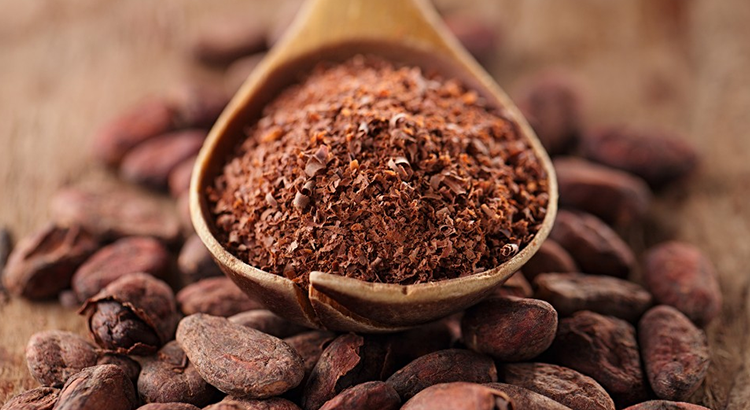
While some claim cacao clogs pores which result in acne, others believe it promotes circulation to your skin and actually makes your skin radiant and healthy-looking. So, cacao, is it healthy or unhealthy?
Cacao, the tree of the Gods
The cocoa tree or cacao seed is also known as a seed of Theobroma cacao, meaning “the food of the gods” in Greek.
A natural aphrodisiac, mood enhancer, and stimulant, or simply as chocolate, many agree it is tasty, healing and delicious. Some disagree.
In the Mayan culture, cocoa was “the food of the gods.” They used cocoa as food and as a medicine. In Europe, cocoa was first brought by Cortes in 1528. At first, it was consumed as a bitter drink and much later (17th century) it became popular when mixed with milk and sugar.
Today, cocoa is widely cultivated in South America and West Africa and is enjoyed by old and young.
The part of the cocoa tree part that is used is the seed. Cocoa is prepared by removing the seeds from their shells. When removed, it is fermented and then roasted. When cooked it gets a savory chocolate flavor. When processed, the outcome is cocoa powder or cocoa butter.
Cocoa compounds
Cocoa key actions are antioxidant, diuretic, nutritive and stimulant.
Cocoa seeds are rich in theobromine (mild caffeine), tryptophan and flavonoids. They are recognised for their antioxidant benefits and are believed to reduce the risk of cardiovascular disease.
The theobromine component also helps harden tooth enamel, so teeth are at less risk of decay. Some even believe that cocoa extract is more effective at protecting teeth than fluoride.
Being a good source of tryptophan and anandamide (natural brain stimulant) cocoa is an excellent mood-elevating constituent. In small amounts, cocoa is rich in tannins and volatile oils, catechin, epicatechin, potassium, copper, magnesium, zinc, calcium, phosphorus, and caffeine.
Even though all the mentioned ingredients are found in small amounts in cocoa, when combined, it is enough to affect people’s mood significantly and produce a feeling of ecstasy.
Hot or cold, mixed with milk or drank as such, the cocoa plant is among the earliest natural food used by humankind for its psychoactive effects. When consumed in its raw form, cocoa has stimulating effects, it helps you increase alertness, maintain your cardiovascular health, stimulates your digestion, and it offers beauty benefits to your teeth.
However, most cocoa benefits are only found in raw cocoa powder or dark (processed as least as possible) chocolate. Unlike milk chocolate or highly processed cocoa, dark chocolate decreases LDL cholesterol oxidation, reduces the risk of blood clots, increases blood flow in arteries and may even improve the health of your teeth, your heart, and your skin.
So, where is the slip-up?
People love to each chocolate but mainly milk chocolate. Or, they like to drink sweetened cocoa drinks such as hot chocolate. The slip-up is in highly processed cocoa and milk chocolate. Highly processed cocoa has a tiny amount of flavonoids. Milk chocolate has tonnes of white sugar and saturated dairy fats, and it has far fewer (or none) health benefits than raw cocoa.
70% cocoa or more (known as bittersweet) contains little or no added sugar and is made without the use of hydrogenated oils (which have a negative impact on cholesterol). Instead, it is made from cocoa butter, and it is rich in flavonoids and other essential compounds, which has a neutral or even beneficial effect on cholesterol and your skin. Thus, cocoa:
- Helps increases blood flow to the surface of the skin (cocoa butter is a great anti-wrinkle solution, it re-moisturizes dry skin especially around the eyes)
- Improves cardiovascular health
- Increases alertness
- It boosts circulation to your skin
- Enhances your mood (due to serotonin and endorphin levels)
- Excellent for psychological well-being
Cocoa powder contains minimum fat; dark chocolate contains less fat and sugar than milk chocolate.
Therefore, there is no need to use this delicious cocoa hot drink or dark and tasty chocolate only on special occasions. Like any other natural, healthy product, cocoa can be used on a regular basis, yet moderately for optimal results.
Please note: Some people might be allergic to ingredients found in cocoa. If not sure whether or not you should use cocoa, consult your physician. Also, cocoa contains caffeine, which in large doses can be toxic resulting in arrhythmia and vomiting.
The darker the chocolate and less processed, the better it is for you (especially if bitter, meaning the manufacturer did not remove flavanols due to their bitter taste).



